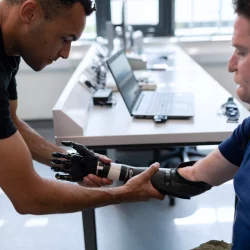How GeneType Risk Assessment Enhances Early Disease Detection
The earlier you learn about a condition, the higher your chances are of remaining well. Early illness diagnosis is similar to having an advantage in a race. Because it assists in identifying possible health issues before they become significant difficulties, genetic risk assessment is an effective tool in preventive healthcare. With GeneType risk assessment, you can understand your genetic predispositions to various diseases. With this information, you may take preventative measures, including changing your lifestyle or getting tests frequently, to identify problems early on or perhaps avoid them completely. It's all about staying one step ahead when it comes to your health.
Identifying Genetic Markers
Advanced genetic testing is utilized in GeneType risk assessment to estimate an individual's susceptibility to certain diseases. The process looks at certain genetic markers associated with a higher chance of developing certain diseases. Individual risk profiles are created by analyzing these indicators. This information aids in the effective management of potential health risks by enabling consumers and healthcare professionals to make informed decisions about lifestyle changes, early interventions, and preventive measures.
Advantages of Early Detection
- Improved Patient Outcomes - By treating illnesses at a controllable stage, lowering complications, and raising the likelihood of a good outcome, early intervention improves health outcomes.
- Cost Reduction - By preventing costly treatments that are necessary for diseases that are advanced in stage, preventive interventions and early detection greatly reduce healthcare expenditures.
- Proactive Health Management - Early detection improves general health and well-being by enabling people to make knowledgeable lifestyle decisions and obtain prompt medical attention.
- Enhanced Quality of Life - People's quality of life can be improved by early illness detection, which can also avert severe symptoms and consequences.
- Increased Survival Rates - By starting therapy as soon as a life-threatening disease is identified, survival rates can be significantly increased.
Role of Genetics in Modern Medicine
Combining genetic testing with traditional medical care leads to more accurate diagnoses and personalized treatment regimens. Genetic information may be incorporated into existing diagnostic procedures to enable healthcare providers to provide more efficient and customized treatment plans. Ultimately, by facilitating a deeper comprehension of each patient's unique health risks, inclinations, and reaction to therapy, this cooperative approach enhances patient outcomes.
Medical professionals may make well-informed decisions on prevention, early detection, and treatment methods with the use of genetic assessments, which offer significant information that supplements conventional diagnostic techniques. A holistic approach to patient treatment is encouraged by the synergy between genetic research and conventional medical procedures, with the goal of maximizing health management and quality of life.
Future Directions in Genetic Risk Evaluation
Genetic testing technological advancements are revolutionizing preventive medicine by providing deeper insights into individual health risks and predispositions. Through the use of genetic risk assessments, these developments may lead to more effective personalized treatment plans, earlier detection of illnesses, and empowered individuals to take control of their health.
Conclusion
In conclusion, the integration of genetic risk assessment into healthcare represents a pivotal advancement in preventive medicine. By leveraging genetic insights, individuals and healthcare providers can proactively manage health risks, enhance treatment efficacy, and ultimately foster better health outcomes through early detection and personalized care strategies.







